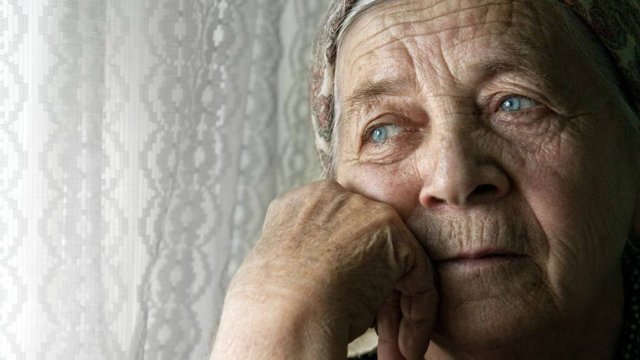Depression in adults older
Depression in older adults is a widespread problem, but it is not a normal part of aging. Frequently, no treatment is recognized or received.

Depreciation is a mood disorder in which feelings of sadness, loss, anger or frustration interfere with daily life for weeks or longer.
Causes
In older adults, changes in life can increase the risk of depression or make the existing depression worse. Some of these changes are:
- Moving from home, such as to a senior center
- Pain or chronic disease
- Children leaving home
- Spouse and close friends who die
- Loss of independence (for example, problems taking care of yourself without help or moving, or loss of driving privileges).
Depression can also be related to a physical condition, such as:
- Thyroid disorders
- Parkinson disease
- Heart disease
- Cancer
- Stroke
- Dementia (as Alzheimer's disease)
- Excessive consumption of alcohol or certain medications (such as sleeping pills) can make depression worse.
symptom
Many of the usual symptoms of depression can be seen. However, depression in older adults can be difficult to detect. Common symptoms such as fatigue, lack of appetite and problems sleeping can also be part of the aging process or a physical condition. As a result of this, early depression can be ignored or confused with other conditions that are common in older adults.
Tests and exams
The health care provider will perform a physical exam. He will ask you questions about your medical history and symptoms.
Blood and urine tests can be done to look for a physical illness.
It is likely that a mental health specialist will be needed to help with diagnosis and treatment.
Treatment
The first steps of the treatment are:
- Treat any condition that may be causing the symptoms.
- Stop any medication that may be making the symptoms worse.
- Avoid alcohol and sleeping pills.
- If these measures do not work, antidepressants and psychotherapy often help.
Doctors generally prescribe lower doses of antidepressants for the elderly and increase the dose more slowly than younger adults.
To better manage depression in the home:
- Exercise regularly, if the provider says it is OK.
- Surround yourself with loving and positive people, and carry out pleasant activities.
- Learn good sleep habits.
- Learn to monitor the early signs of depression and know how to react if this happens.
- Drink less alcohol and avoid illicit drugs.
- Talk about your feelings with someone you trust.
- Take the medications correctly and talk about any kind of side effects with the provider.
Expectations (prognosis)
Depression often responds to treatment. The clinical outcome will generally be better for those who have access to social services, family and friends who can help them stay active and busy.
The most worrisome complication of depression is suicide. Men represent the majority of suicides among the elderly. Divorced or widowed are at greater risk.
Families should pay close attention to older family members who are depressed and live alone.
When to contact a medical professional
Check with the provider if you are feeling sad, handicapped or hopeless, or if you cry frequently. Also, check if you are having difficulty coping with stressful situations in life and want a referral to psychotherapy.
Go to the nearest emergency room or call the local emergency number (such as 911 in the United States) if you are thinking of committing suicide (attempt on your own life).
If you are caring for a family member in advanced age and you think that person may have depression, contact your doctor for proper care.
Very topical problem. Depression literally destroys a person and frivolous attitude does not allow. It is necessary to help such people, they are many and they are close
These are frequent problems in older people it takes a lot of patience and understanding to help them.
@michelduartes only 1 resteems left! Please consider extending your subscription if you enjoyed my service! (or delegate 20 SP and reply to this message) Thanks : )
Reply OFF to mute these renewal notices